Everyone has a travel dream in their heart. I remember when I first had the idea of backpacking - it was while watching a YouTuber's vlog in my college dorm. He was in a small town in Vietnam, riding a motorbike through narrow streets lined with rustic French architecture, with the aroma of baguettes and coffee wafting through the air. At that moment, I decided I wanted to experience that kind of life.
Now, after traveling through more than 20 countries, I increasingly feel that backpacking is an addictive lifestyle. It's not just a way of traveling, but a way of life. That feeling of freedom, of going wherever you want - it's something money can't buy.
When people think of backpackers, their first reaction might be "budget travel." While saving money is indeed one characteristic of backpacking, it's not the whole story. Backpackers focus more on the depth and quality of travel rather than surface luxury and comfort.
I remember my first time staying in a hostel, at a small place in Chiang Mai, Thailand. Though the room was simple, it was clean and tidy. What surprised me most was the tropical-styled common area. Travelers from around the world sat around bamboo tables and chairs - some reading, some playing guitar, some sharing travel experiences. That atmosphere is something a five-star hotel could never match.
Backpackers often choose more down-to-earth modes of transportation. In India, I frequently took local tuk-tuks and long-distance buses. While there might be small incidents, like a driver suddenly stopping to haggle with a roadside vendor, or a monkey suddenly jumping onto the bus, it's these unexpected experiences that make the journey more interesting and memorable.
The backpacking community is quite diverse. In my travel experiences, I've met all kinds of backpackers, each with their own unique story.
Once in Pokhara, Nepal, I met a German university professor. He had been using his summer vacations to go backpacking for over twenty years. He said it was his secret to staying young at heart. In his view, backpacking not only allowed him to experience different cultures but also gave him a fresh perspective on his own life and work.
In Siem Reap, Cambodia, I met two Korean sisters. Both office workers, they would take long vacations every year to backpack through Southeast Asia. They said that compared to the comfort of group tours, they preferred the freedom and adventure of backpacking. Being able to explore each place at their own pace, even getting lost could become a beautiful memory.
Then there was the retired Japanese teacher I met in New Zealand, traveling alone with his camera throughout the North and South Islands. He told me that retirement life shouldn't be limited to staying at home; while still healthy, one should go see the world. His camera was full of photos of various people and landscapes he'd encountered on the road, with a touching story behind each picture.
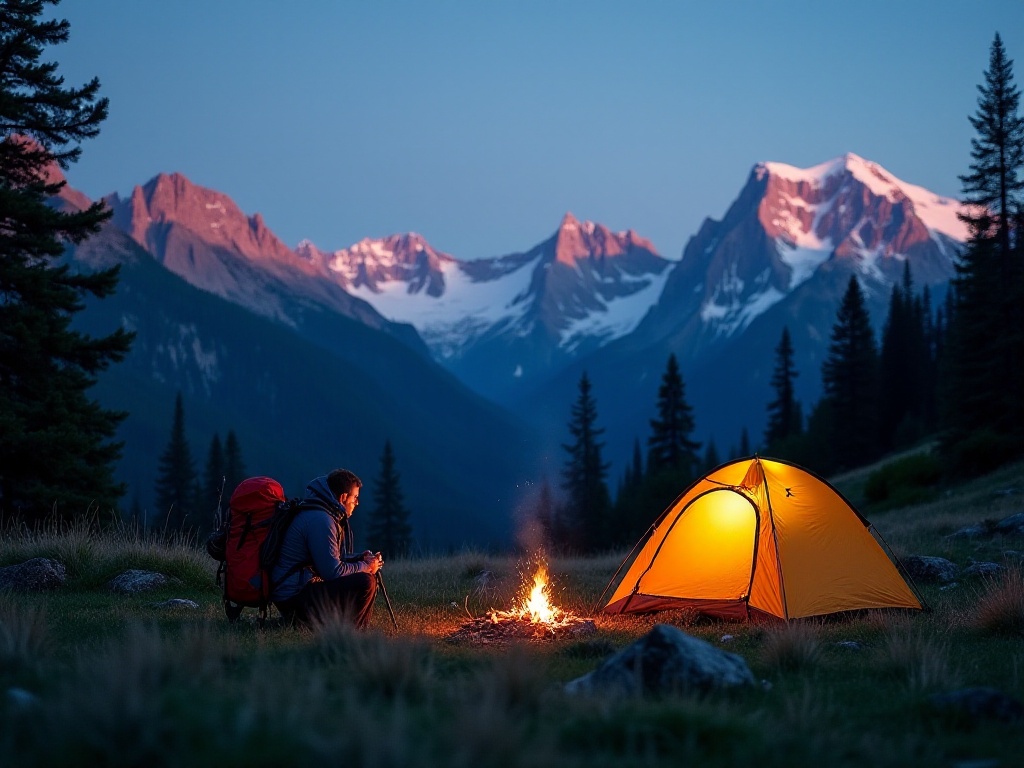
Although backpacking emphasizes freedom and spontaneity, if you want to enjoy yourself safely, preparation work shouldn't be taken lightly. I've summarized some experiences that I hope will help those who want to try backpacking.
First is the budget issue. Different destinations vary greatly in cost. For example, in Southeast Asia, 200-300 yuan per day is plenty. A hostel costs about 50-80 yuan, a meal at a local restaurant 30-50 yuan, plus transportation and admission tickets - it's completely sufficient. But in Japan, the same standard might need to be doubled. When I was in Osaka, just a regular bowl of ramen cost 40-50 yuan, and a capsule hotel was around 200 yuan per night.
Regarding itinerary planning, my advice is to leave room for flexibility. I remember my first time in India, I packed the schedule full, only to discover that Indian transportation wasn't as punctual as imagined. It was normal for trains to be delayed by two or three hours, which disrupted all subsequent plans. Later, I learned to leave buffer time, and ended up traveling more relaxed and comfortable.
Visas also need advance preparation. Many countries require return tickets and accommodation proof for visas. But as backpackers, we often don't book all accommodations in advance. In such cases, you can book one or two nights first to satisfy visa requirements, then adjust according to actual circumstances after arriving.
Additionally, pay attention to the destination's seasons and weather. I learned this lesson in Nepal - I went during the rainy season when many trekking routes were closed. Later I found out that the best time to visit Nepal is from October to April of the following year, when the weather is clear and visibility is good.
Choosing suitable equipment is crucial for backpackers. After all, this equipment will accompany you across thousands of miles.
Backpack selection is paramount. I currently use a 40-liter backpack that has accompanied me through more than a dozen countries. When choosing a backpack, note several key points: first, the carrying system must be comfortable, as you might carry it for long periods; second, it should be waterproof, especially in rainy places like Southeast Asia; finally, it's best to have anti-theft features, like hidden zippers or secret pockets, for valuable items.
Clothing selection should be minimalist and practical. I usually bring 3-4 quick-dry T-shirts, two pairs of lightweight pants, and one wind/rain-proof jacket. You can bring more underwear and socks since these items are small and relate to personal hygiene. For shoes, one pair of comfortable sneakers and one pair of sandals is enough.
For electronics, besides a phone and power bank, I also bring a small camera. Although phones now have powerful photography functions, cameras still have advantages in certain situations, like night scenes or telephoto shots. Also, I recommend bringing a lightweight laptop or tablet for checking information, booking tickets, and handling work if necessary.
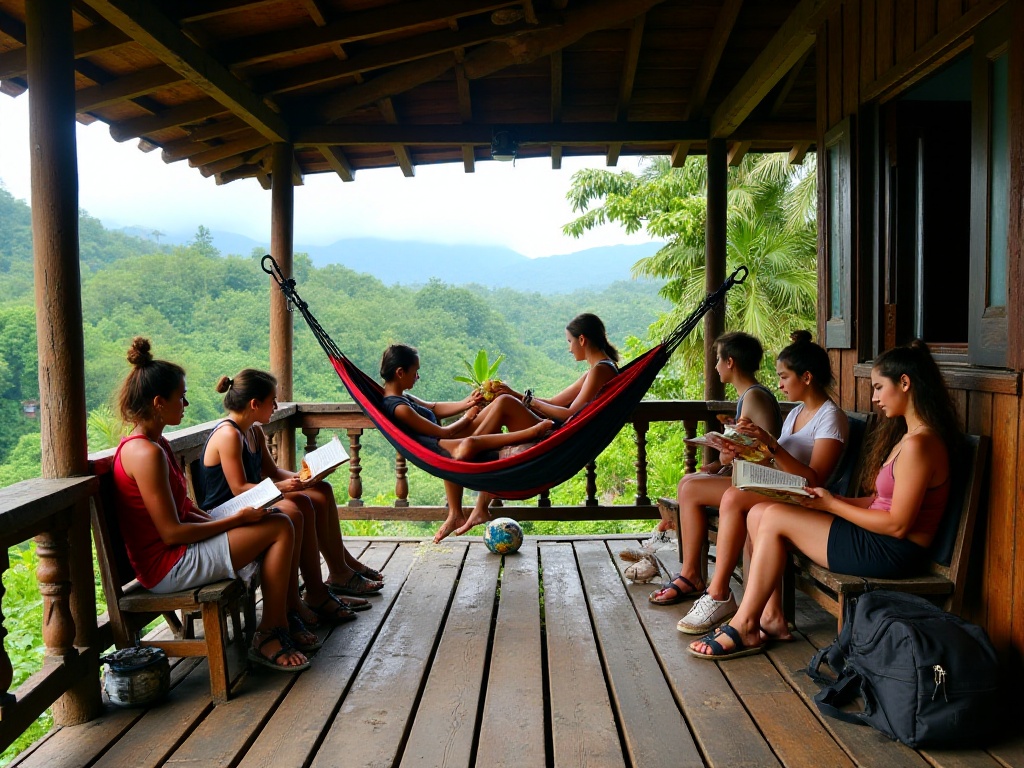
As a backpacker, choosing suitable accommodation not only saves money but can also bring unexpected travel experiences.
Youth hostels are definitely the first choice for backpackers. I've encountered many unique hostels in Southeast Asia, like one in Hoi An, Vietnam, converted from a century-old house. In the evenings, guests would gather in the courtyard, drinking Vietnamese coffee and chatting late into the night. In such places, you not only save money but also meet friends from around the world.
However, when choosing hostels, pay special attention to safety issues. I usually check if there are any safety concerns mentioned in the reviews, such as whether the locks are reliable and if the staff is professional. Also, it's best to choose hostels with lockers so you can lock up valuables and go out worry-free.
If you find hostels too noisy, you can consider guesthouses. Many places now have local-style guesthouses at moderate prices, where you can truly experience local life. I remember staying at a machiya guesthouse in Kyoto, where the host was an elderly lady who prepared traditional Japanese breakfast for guests every morning and taught us how to wear yukata - a rare cultural experience.
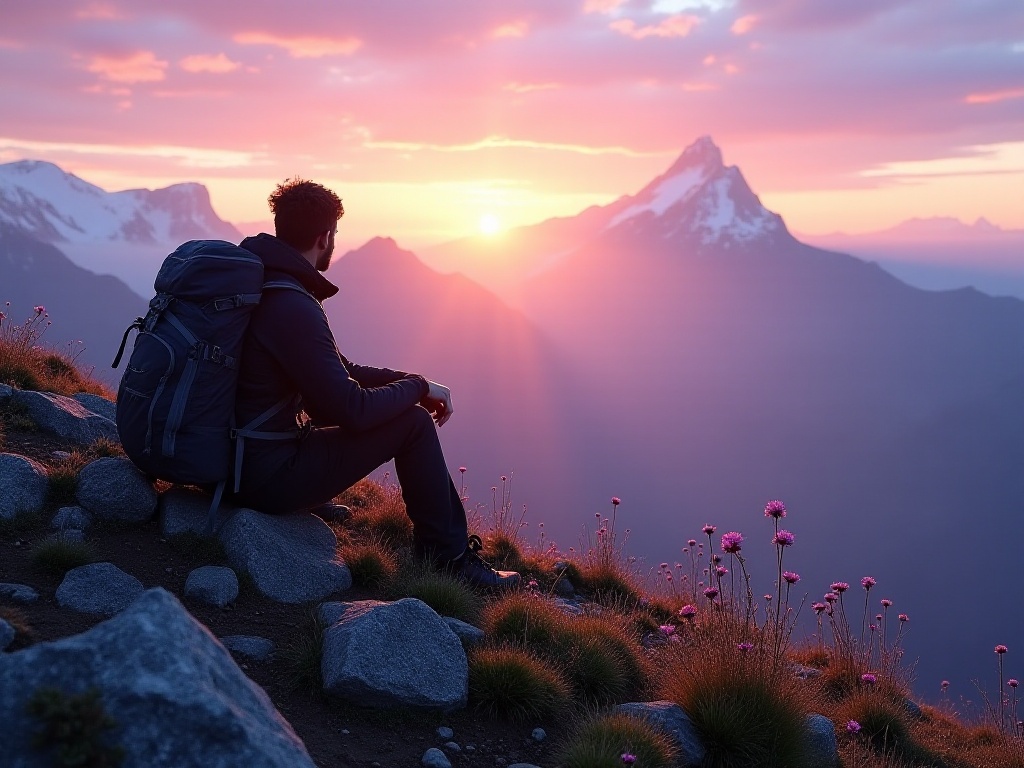
Regarding transportation, the biggest characteristic of backpackers is trying to choose the transportation methods locals commonly use. This not only saves money but also allows you to experience the most authentic lifestyle.
In Southeast Asia, my favorite mode of transportation is the motorcycle. In Hanoi, Vietnam, you can easily rent a motorcycle for about 100 yuan per day. Riding a motorcycle through Hanoi's streets and alleys, feeling the pulse of the city, is a special experience. However, pay attention to safety - always wear a helmet and follow local traffic rules.
For long-distance travel, I usually choose night buses or trains. This saves both a night's accommodation cost and daytime hours. In India, I often took night trains. Although conditions might not be as comfortable as planes, you can see many interesting scenes, like vendors selling Indian milk tea in the carriages, or meeting friendly Indian families sharing their lunch.
For me, the greatest charm of backpacking is being able to deeply experience local culture. Not just superficial sightseeing, but truly integrating into local life.
In Japan, I specifically chose to stay with local families to experience their lifestyle. Every morning, I would go to the nearby market with the host to buy vegetables, learn chopstick etiquette, and experience traditional Japanese bathhouses. These details gave me a deeper understanding of Japanese culture.
In Varanasi, India, I once studied yoga with a yoga teacher for a week. Getting up at five every morning to meditate by the Ganges, then starting yoga classes. Although the process was tough, it helped me truly understand Indians' pursuit of spiritual life.
In Vietnam, I participated in local cooking classes. Starting from buying fresh ingredients at the morning market, learning how to make Vietnamese fish sauce, how to wrap spring rolls. These experiences gave me a whole new understanding of Vietnamese cuisine.
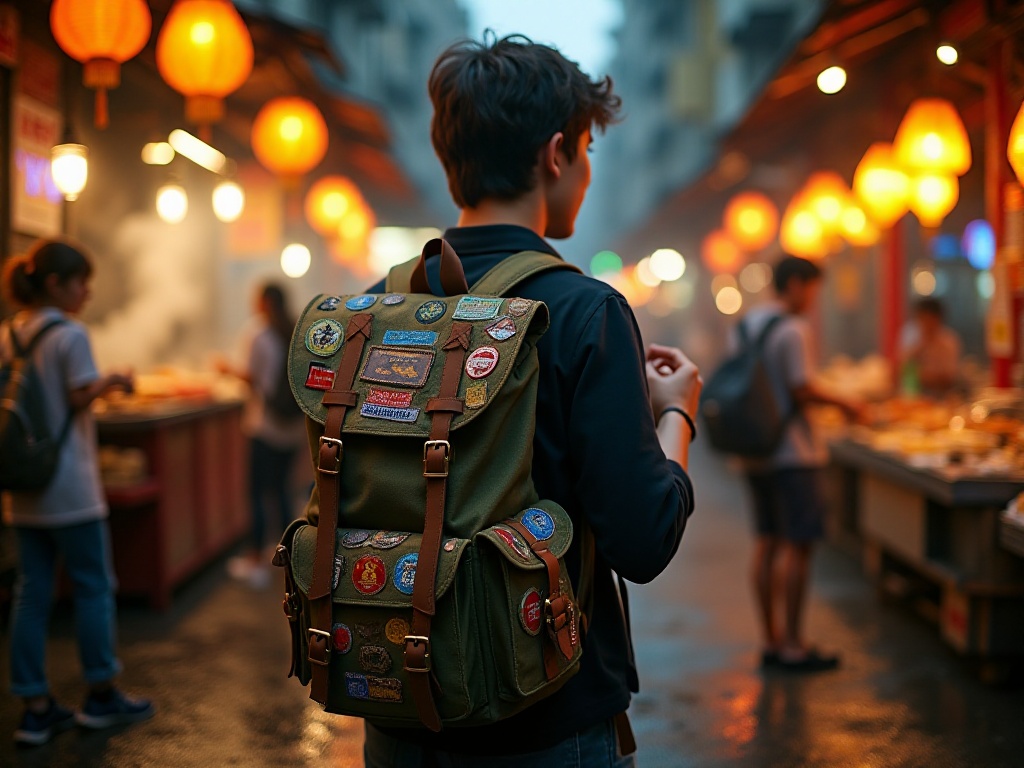
Regarding safety issues, as a backpacker, you do need more vigilance than regular tourists. But with proper preparation, there's really no need to worry too much.
First is document safety. I keep important documents like passports and credit cards stored separately, and prepare copies or electronic versions. If the originals are lost, there are still backups available. Cash should also be stored separately, don't keep all money in one place.
Second is personal safety. Although most places are safe, some basic principles should still be followed. For example, try not to go out alone at night, especially in remote areas. If taking a taxi, it's best to use official ride-hailing apps and avoid illegal taxis.
Regarding accommodation, I pay special attention to room security facilities. Door locks must be reliable, and windows should lock properly. If staying in hostels, it's best to choose female-only rooms, and keep valuables in lockers.
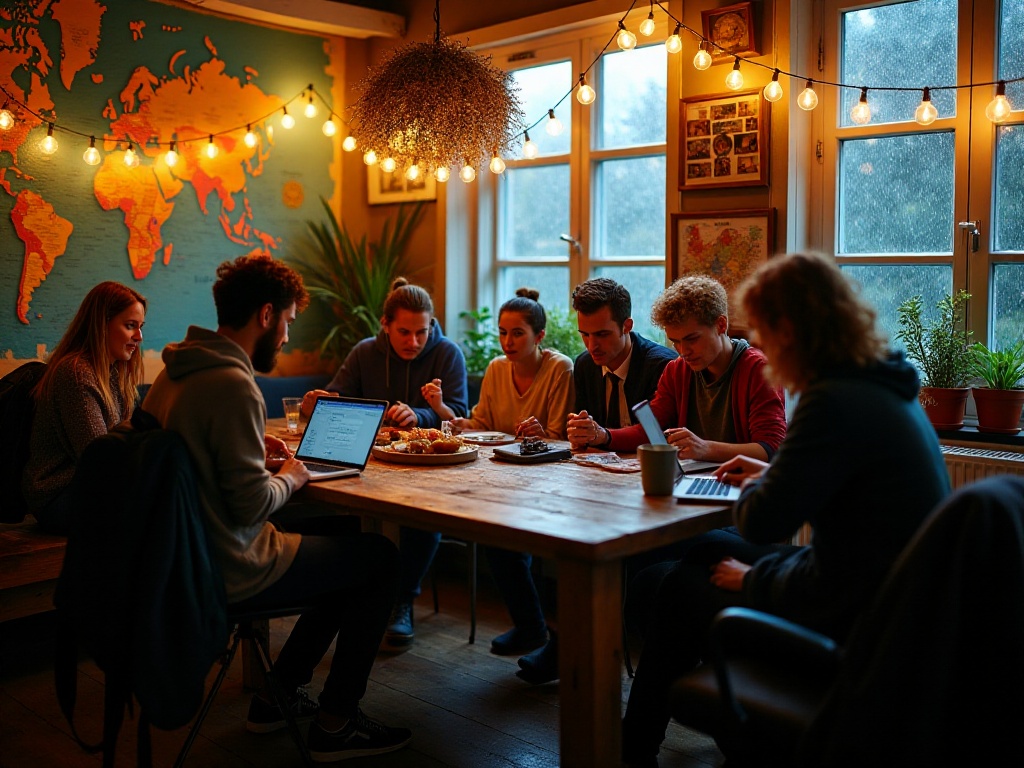
After so many years of backpacking, I deeply appreciate the charm of this way of traveling. It has not only shown me the vastness of the world but also given me new insights about myself.
On the road, I learned to solve problems independently, learned to communicate with people from different cultural backgrounds, and learned to view the world with a more open mind. Each journey is a growth experience, and every person I've met has left a deep impression.
If you want to try backpacking, my advice is to start with simple destinations. For example, first go to a place with convenient transportation and no major language barriers. After gaining some experience, then try more challenging destinations.
Remember, the meaning of backpacking isn't about how many places you've been, but what you've learned and gained along the way. When you truly start backpacking, you'll discover that this world is far more fascinating than you imagined.
Looking forward to meeting you on the road, filled with enthusiasm for backpacking. Let's measure the world with our footsteps together, feel different cultures with our hearts, and create our own travel stories.
 Previous
Previous
